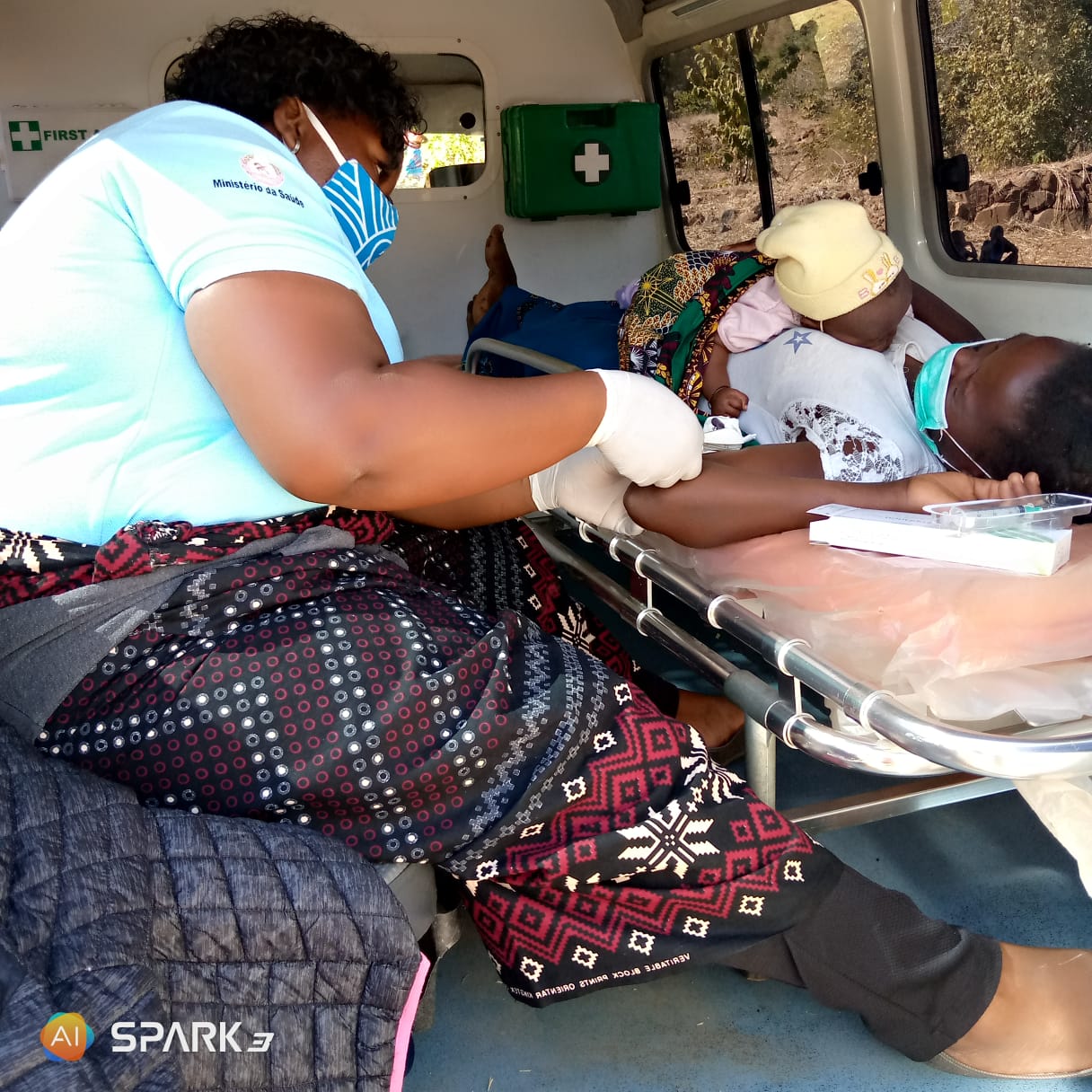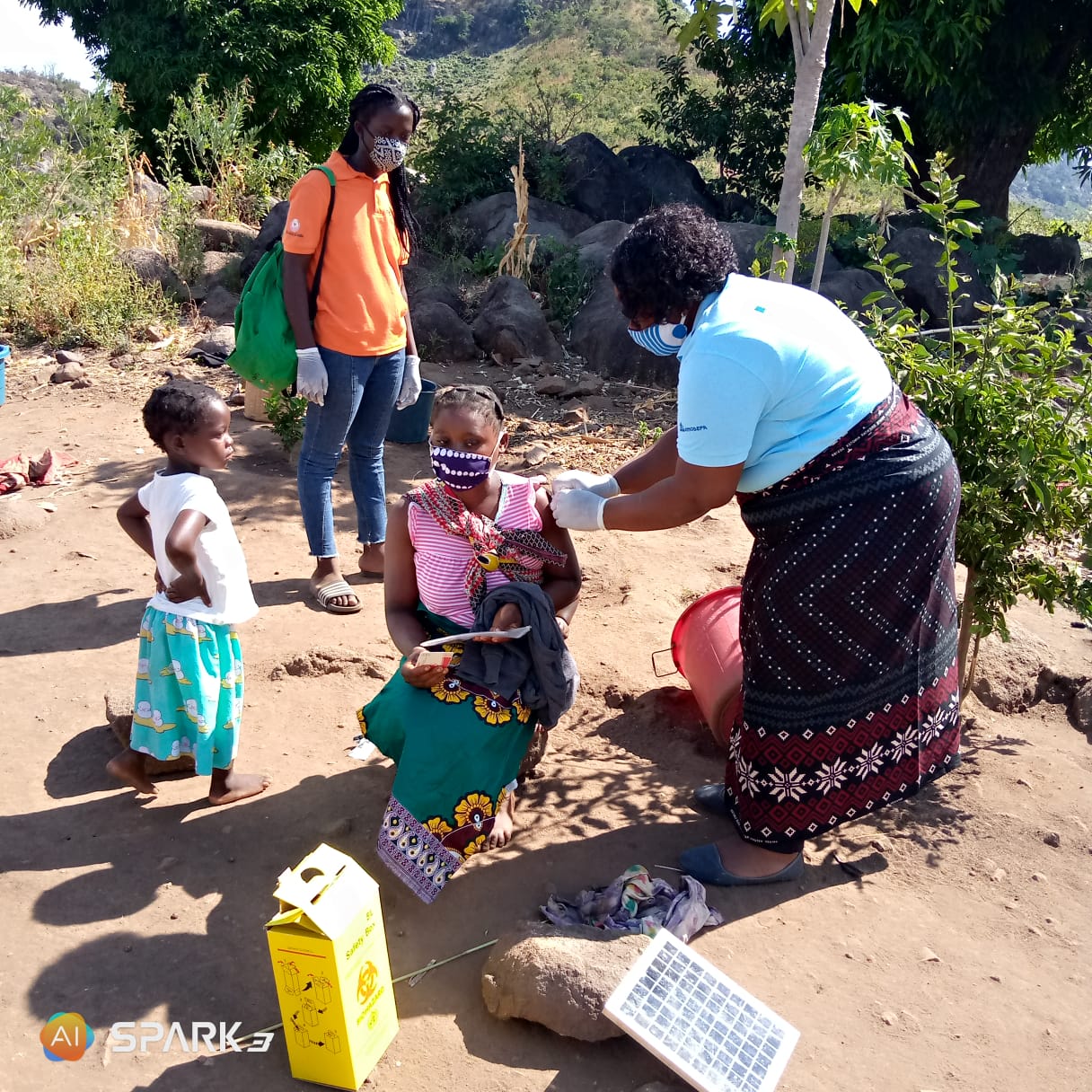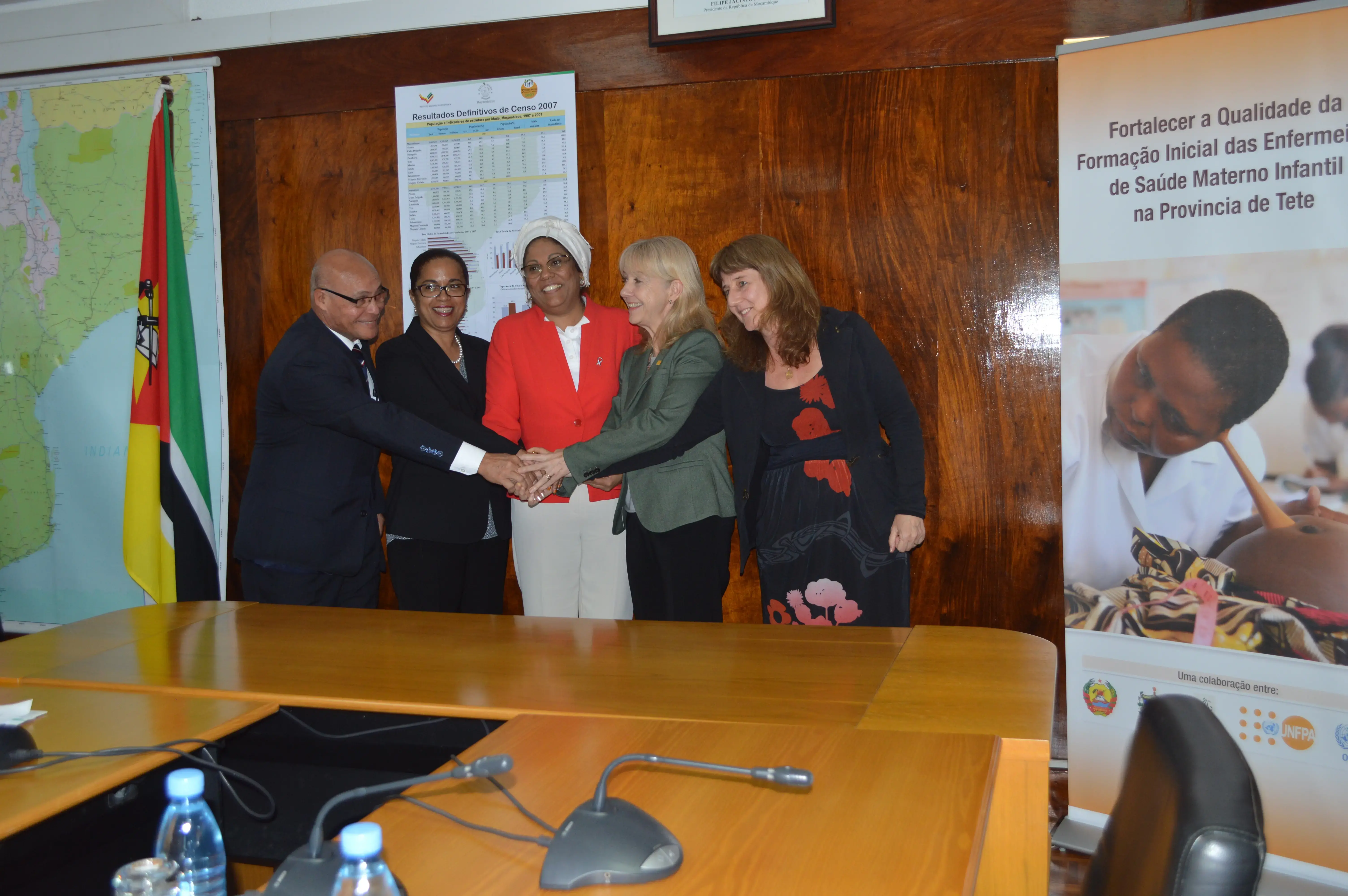"We had to resort to the ‘rhythm’ method (a ‘calendar-based’ method where you track your menstruation history to determine when you’re most fertile), but it was not easy because it left me insecure, and [the] anxiety to see my period was much higher and did not give me peace of mind"
shared Malua, a young woman from Tete province in Mozambique.
Malua is one of hundreds of girls in Tete province receiving family planning services through mobile brigades. These services ensure that the most vulnerable - who may otherwise not have direct or easy access to health centers - get life-saving health and protection support when they need it most.

During 2020, as Mozambique was responding to COVID-19, the Government was also focused on mitigating and lessening the secondary impacts of the pandemic.
For women and girls, restricted mobility, reduced economic opportunities and direct or easy access to schools or health centers meant that accessing family planning methods became more of a challenge.
In March 2020, Mozambique recorded its first case of COVID-19. This situation put all health professionals providing family planning services on alert. As of that same month, there were an estimated 2.8 million women in Mozambique using modern contraceptives.[1]
In response to the pandemic, the Government took measures to slow the evolution and peak of COVID-19.
In 2019, Malua started to use the Sayana press [a female contraceptive injection lasting 3 months]. “The nurse warned me that this method has a duration of three months, and that after that time, I could receive another injection through mobile brigades in my community.”
"Because of COVID-19 the brigade did not come for a short period of time. This caused [me to go through] the months of May and April unprotected, running the risk of having a new pregnancy. I had condoms, and bought more, but they ran out."

“With the new normal, I feel relieved, because I returned to receive an injection and in three months, the nurse will be in my community again to support me with new and continued methods of contraception.”
The COVID-19 pandemic has had immediate and notable impacts on women’s access to family planning. Data extracted from the Health management information system (DHIS-2) as per November 5th show that since May 2020 the monthly number of new users of modern family planning reduced significantly from 315,095 to 208,235. This indicates 344,000 fewer women initiated contraception in this time period than the same time period in 2019 (UNFPA Family Planning Situational Analysis).
UNFPA has existing initiatives that support the Government to improve the accessibility of family planning services. One such programme is My Choice, which is funded by the Government of the Kingdom of the Netherlands, and aims to accelerate efforts to reduce unwanted pregnancies among adolescent girls and young women by strengthening health systems, increasing availability of family planning services plus improving the accessibility and quality of information. This programme has helped maintain as many family planning services as possible through the pandemic, and continues to do so into 2021.
The ‘My Choice’ programme, running from 2017 to December 2021, has been implemented at the national level, and with a focus on the provinces of Tete and Cabo Delgado. Key activities of the My Choice programme include training male and female activists in family planning services and information, supporting family planning and sexual and reproductive health education in public schools and community information and awareness campaigns.
Nationally in 2019, My Choice provided over 3 million Couple Years of Protection (surpassing the goal of 2.75 million), as well as supporting 251,140 additional women of reproductive age to use a modern contraceptive method compared to the initial 2019 target of 188,860 women.
These sorts of initiatives support maternal child health nurses, who work to support mobile brigades to deliver family planning services and contraceptives to local youth. Through the experiences of these nurses, it is clear that the women and girls they support have spent some time without using contraceptive methods, while others had to resort to less secure methods, with some becoming pregnant.
UNFPA continues to support the Government of Mozambique to ensure that women and girls overcome some of the secondary impacts of the COVID-19 crisis, such as those described by Malua.
In 2020, UNFPA has supported innovative initiatives to ensure continuity of life-saving health and protection services, including mobile brigades to make contraceptives and family planning more accessible to remote communities, distribution of basic dignity kits containing menstrual hygiene and sanitary items, creating women friendly spaces, and supporting the provision of national hot-lines so women and girls can get access to timely information and referral to services.
[1] Impact of the COVID-19 Pandemic on Family Planning and Ending Gender-based Violence, Female Genital Mutilation and Child Marriage
[2] Ibid



